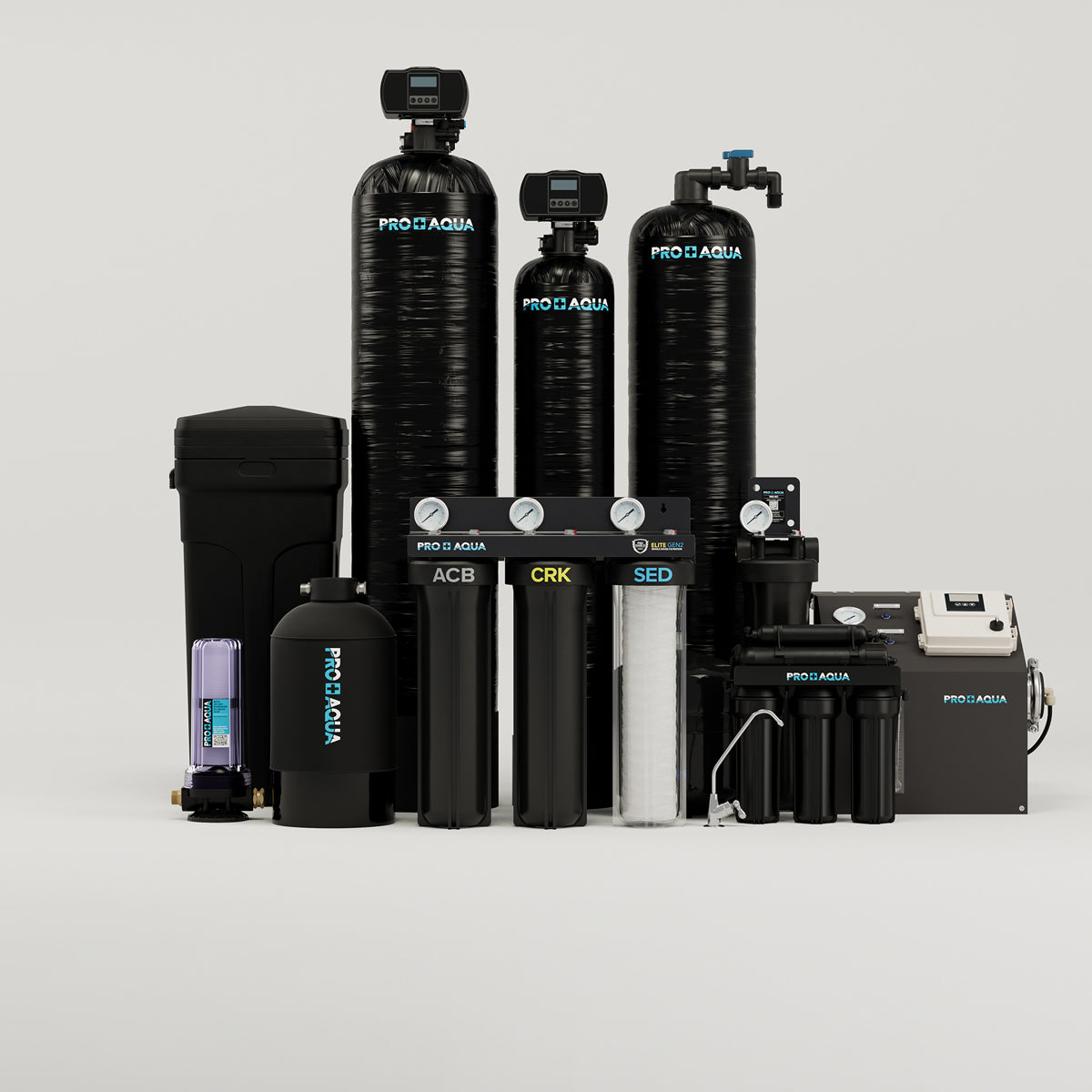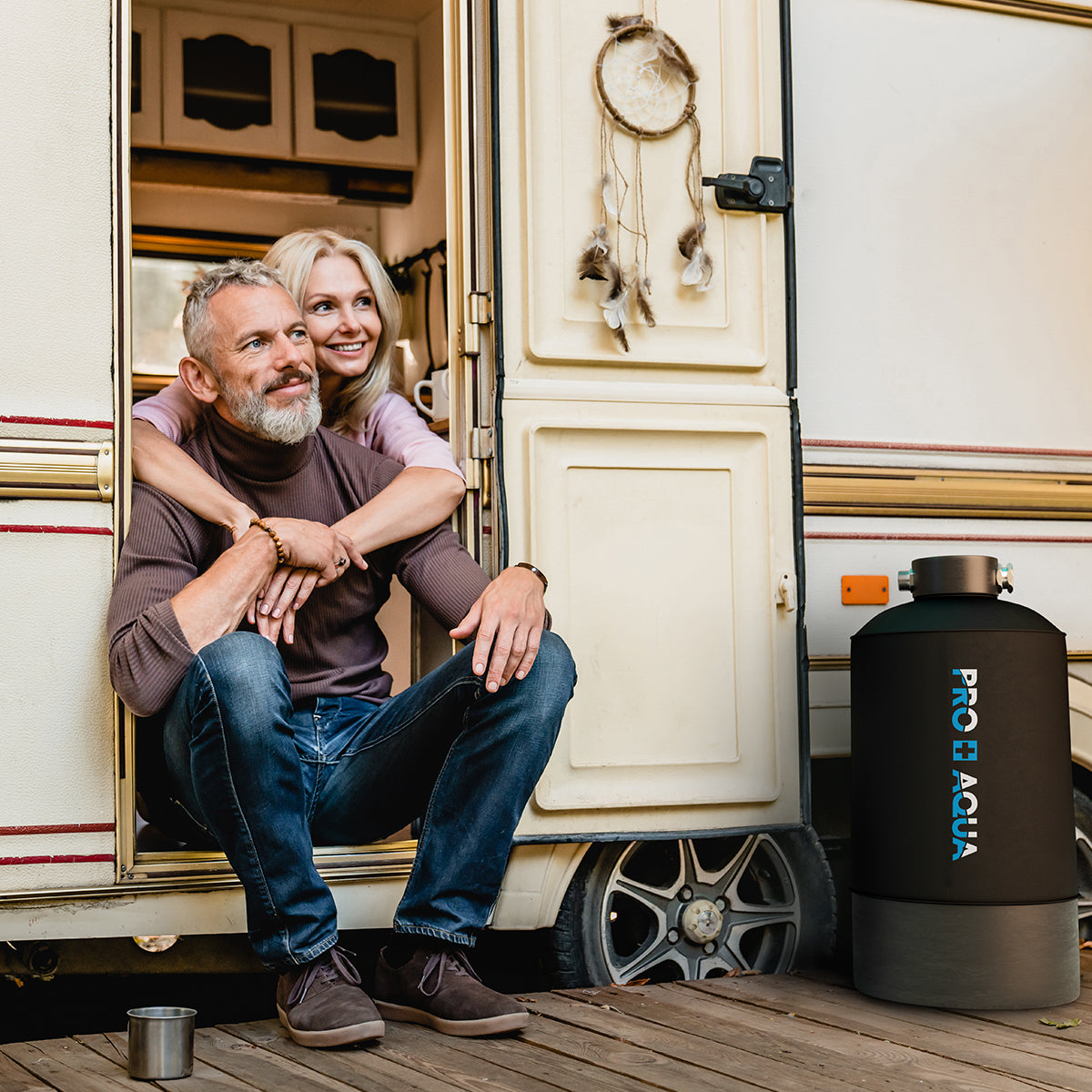Most homeowners think soft water is just a luxury. It offers smoother skin, cleaner laundry, and shinier dishes. The real story goes deeper.
Hard water silently drains efficiency from your home. It raises energy bills, forces you to use more detergent, and wears down appliances. Comfort is the surface benefit. Efficiency is the hidden advantage.
In this blog post we'll go through the difference between hard vs soft water and how a high efficiency water softener unlocks real savings and long-term protection for your home.
The Real Problem: Hard Water Wastes More Than You Think

Hard water contains dissolved minerals like calcium and magnesium. While harmless to drink, these minerals build up inside pipes, water heaters, and appliances.
Scale buildup insulates heating elements in your energy efficient hot water heater. This forces it to run longer and burn more electricity. Detergents never fully dissolve, leaving residue on laundry and dishes.
Plumbing systems corrode from the inside out. This shortens their lifespan and increases maintenance costs. Even with energy efficient household appliances and water-saving habits, hard water can undo much of your home efficiency work.
How to Tell if You Have Hard Water

Testing your water is easier than most homeowners realize. A simple hard water test kit provides an immediate reading of your water hardness. These kits typically measure minerals like calcium and magnesium, which are the main contributors to scale buildup.
You can also look for signs around your home. Stiff laundry, soap that won’t lather properly, cloudy glasses, and mineral deposits on faucets or shower heads are all indicators of hard water. Even energy efficient household appliances can show early wear if hard water is present.
Water Hardness Chart
|
Water Hardness Level |
Grains per Gallon (gpg) |
Impact |
|
Soft |
0–3 |
Minimal scale, appliances protected |
|
Slightly Hard |
4–7 |
Minor scale, detergents still effective |
|
Moderately Hard |
8–12 |
Visible scale buildup, higher soap usage |
|
Hard |
13–19 |
Significant scale, appliance wear, higher energy use |
|
Very Hard |
20+ |
Severe scale, corrosion risk, frequent repairs |
For the most accurate assessment, a professional water analysis can measure hardness at multiple points in your home. This ensures you understand exactly where scale may be forming and which systems are at risk.
Why It Matters: Scale, Waste, and Rising Costs

The consequences of untreated hard water go beyond minor annoyances. Scale and corrosion reduce efficiency, increase energy consumption, and drive up costs.
- Detergent Inefficiency: Hard water reacts with soap. You need more products to achieve the same cleaning power.
- Energy Drain: Scale insulates heating elements. Your hot water system works harder.
- Corrosion: Minerals accelerate wear inside pipes and appliances, shortening their life.
Unchecked, hard water quietly drives up bills and stresses your home systems. Every faucet, heater, and appliance faces added strain, leading to high energy bills and costly repairs.
Efficiency Gains You Can Measure

Hard water affects more than just the feel of your water. It quietly reduces efficiency throughout your home, from laundry to heating to plumbing. The following areas highlight where measurable savings and performance improvements can be seen when water hardness is addressed.
1. Detergent and Soap Efficiency
Hard water forces you to use more detergent and soap. Laundry feels stiff, dishes spot, and showers leave residue.
A high performance water softener changes the game. Soft water delivers stronger lather and cleaner rinses. This reduces detergent use and household costs. Less soap wasted means more savings every month.
2. Energy Use in Water Heaters
Scale buildup acts as an insulator on heating elements. This reduces efficiency and increases energy use.
Pro+Aqua systems remove these minerals. Your energy efficient hot water heater performs optimally. The payoff is lower energy bills, a longer heater lifespan, and an overall energy efficient household appliances ecosystem.
3. Plumbing and Appliance Longevity
Mineral deposits corrode pipes, reduce flow, and damage dishwashers, washers, and other appliances.
Pro+Aqua systems prevent scale and corrosion from hard water. They preserve plumbing performance and reduce the risk of breakdowns. Fewer repairs, fewer replacements, and maximum protection keep your home running smoothly.
Pro+Aqua Solution: Engineered for Performance and Protection

PRO+SOFT softeners are precision-built systems designed to tackle hard water at its source. This high performance water softener is engineered to deliver reliable results. It removes the minerals that cause scale and corrosion while maintaining consistent flow and efficiency.
The Operational Payoff: Efficiency That Protects Your Home
The efficiency wins of a Pro+Aqua softener go beyond convenience.
With Pro+Aqua, efficiency is engineered in. Don’t let hard water waste your money or wear down your home.
Choose PRO+SOFT for maximum protection and proven efficiency. Every faucet, appliance, and pipe is defended, so your home runs smoother, cleaner, and smarter.
FAQs
Why is my energy bill so high?
Hard water buildup in your water heater and appliances forces them to work harder. Scale insulates heating elements, making your energy efficient hot water heater less efficient. Softening your water can restore efficiency and lower bills.
How do you know if you have hard water?
You can use a hard water test kit or observe signs like soap scum, spotty dishes, or stiff laundry. If detergents are not dissolving fully or appliances show mineral deposits, hard water is likely the cause.
Does hard water damage appliances?
Yes. Minerals from hard water cause corrosion from hard water and scale buildup inside pipes and appliances. A high performance water softener protects your home systems, extending appliance life and improving overall efficiency.







Leave a comment
This site is protected by hCaptcha and the hCaptcha Privacy Policy and Terms of Service apply.